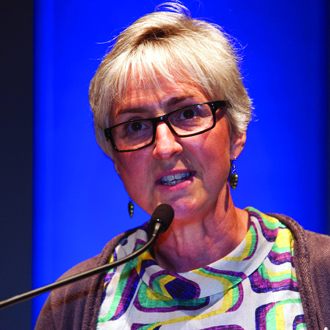Will mass GP list closures force a Government rethink?


YES
It is beyond doubt that general practice is in meltdown. Last year, a GPC survey found 84% of us believe the current level of workload undermines our ability to provide safe patient care, while 31% of practices said they had been unable to fill a vacancy.
Young doctors are not choosing general practice; 27% of GP training posts are unfilled and one in three GPs plans to retire in the next five years. Yet the Government insists patients should be able to see a GP routinely 8am to 8pm, seven days a week.
Ministers want the NHS to become more ‘efficient’ by shifting care from hospitals into the community. But there is no evidence this would save money and there is certainly no capacity, given the shortage of community nurses and the huge cuts in social care.
The NHS is grossly underfunded. In 2015 the UK spent 7.3% of GDP on the NHS; this is set to fall to 6.6% by 2020. We have fewer doctors and nurses per head than comparable developed nations.
It is not safe for GPs to continue to work under such pressure. If ministers won’t listen we must make them listen.
Collectively closing lists – as voted for by LMCs – will increase safety for our registered patients without a breach of contract. Yes, it will affect access for some, but if general practice collapses there’ll be no access for anyone.
GMS and PMS contracts allow list closure ‘particularly when there is unusual and sustained demand from patients or in situations of workforce or recruitment difficulties that affect a practice’s ability to provide to an acceptable and safe standard’. Surely the current situation fulfils these criteria?
We must explain to patients we want to provide safe general practice to the whole population, but that in the current climate this is not possible. Many already know this; some 250,000 marched in defence of the NHS earlier this year.
Collective action, involving patients and backed by a high-profile media campaign will soon make the Government acknowledge our worth, especially given the result of the general election. I predict we won’t have to close our lists for long.
We cannot continue to jeopardise patients and ourselves by working crazy hours and absorbing more unresourced work. Enough is enough. The Government is not listening so we must take decisive action. If not now, when?
Dr Jackie Applebee is a GP in east London and chair of Tower Hamlets LMC

NO
Closing practice lists en masse is not the answer to the current crisis. It is true general practice is on its knees and I understand why colleagues voted to try this course of action.
But our health service is on the verge of collapse and I believe mass list closures will only exacerbate the strain, undermining the foundations of general practice, hastening its dismantling and leading to a backlash of public opinion.
GMS and PMS contracts allow practices to apply formally to close their lists if workload is jeopardising patient care. But practices that do not wish to have patients assigned to their lists by the area team must go through the formal list closure procedures set out in paragraphs 29–31 of Part 2, Schedule 6. Closure can be for a maximum of 12 months and has to be approved by the area team.
Patient safety is the priority. Practices are required to consult with key local stakeholders, which entails a formal process of engagement. If a practice opts to restrict patient registration without prior discussion with NHS England, it could face contractual action.
We are all-too aware of our responsibilities under the Hippocratic Oath, which states: ‘I will use treatments for the benefit of the ill in accordance with my ability and my judgement, but from what is to their harm and injustice I will keep them.’ Collective list closures could lead to the most vulnerable not getting the care they need.
This does not mean we should sleepwalk to the edge of the precipice. The present state of affairs is critical and there needs to be a clear, workable solution that addresses the concerns around seven-day access, which, amid financial constraint and the workforce crisis, is a national tragedy in the making.
List closure is akin to rearranging the deck chairs on the Titanic while fundamental questions relating to workforce, workload and infrastructure remain unanswered. It is these that must be addressed in a considered manner.
Our last industrial action, in 2012 – when some practices withdrew routine care for a day in protest at pension cuts – was, to put it mildly, toothless. Rather than taking high-risk action, we need to strengthen our GPC negotiating team to encourage dialogue with the Government and NHS England to resolve the issues in a sustainable and practical manner.
Dr Ivan Camphor is a GP in Cheshire and medical secretary of Mid Mersey LMC









